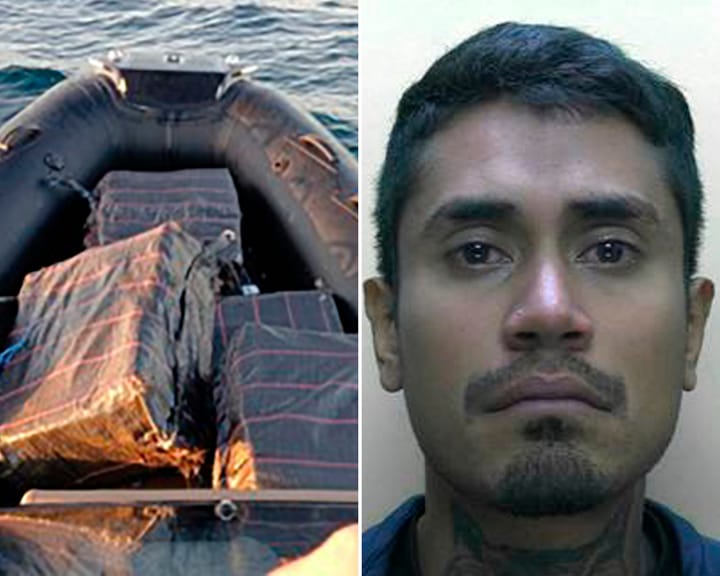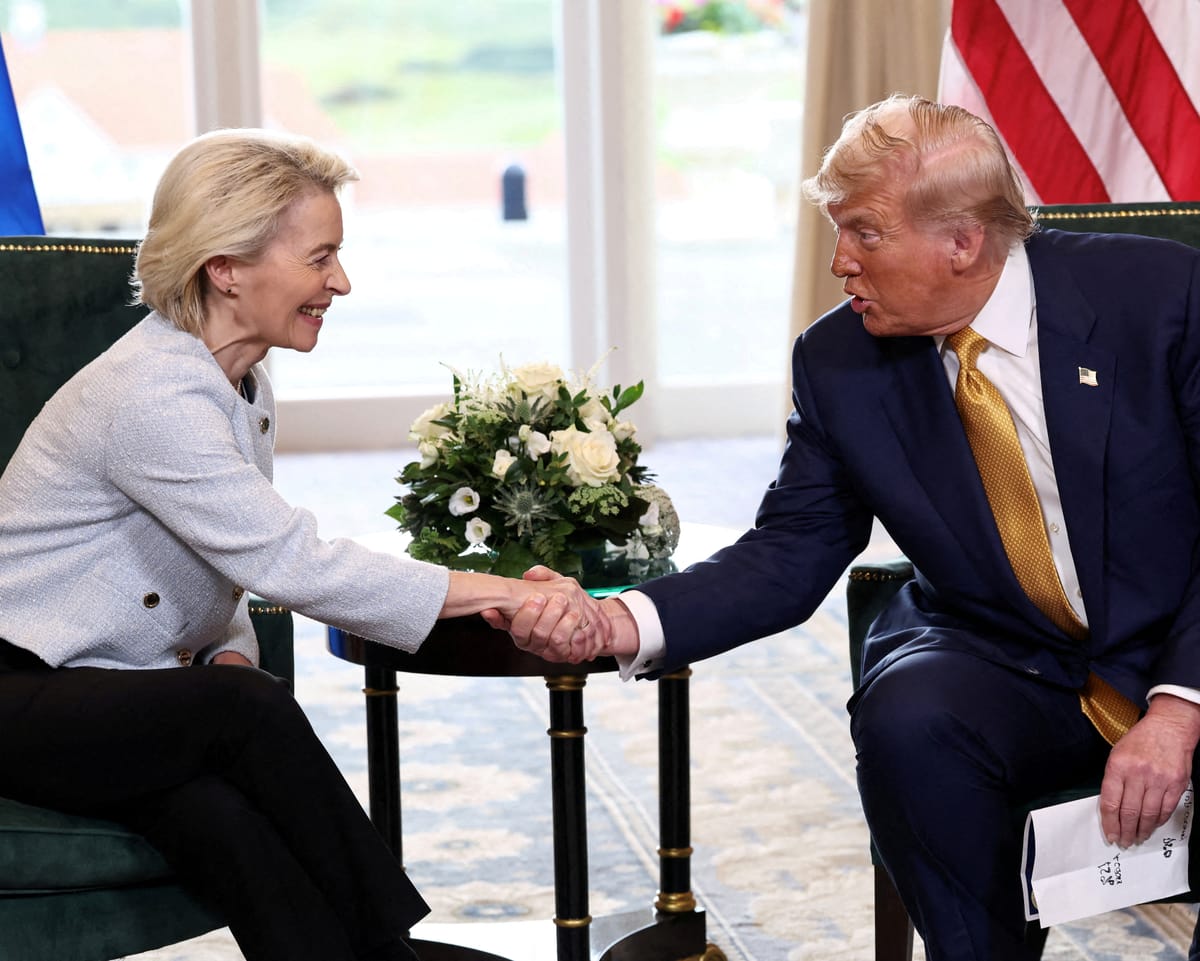There is no question that Ursula von der Leyen faced significant challenges on Sunday as she sat beside Donald Trump at his Turnberry golf resort, ahead of what European officials anticipated would be demanding trade negotiations.
Less than an hour later, the European Commission president announced that the most severe tariff warnings from the U.S. had been averted. However, criticism from within the EU quickly followed.
The agreement reached in Scotland prevented a damaging trade conflict. Yet, leaders across Europe are assessing the implications of committing to a 15% tariff on most EU exports to the U.S., up from an earlier average of 4.8%.
French and German officials, echoing Hungary’s prime minister, Viktor Orbán, emphasized this outcome rather than the greater economic risks posed by a U.S. administration with strong reservations about the EU.
France’s prime minister, François Bayrou, was among those who had hoped Trump’s proposed 30% tariff could be reduced to align with the 10% agreement secured by the UK. He described the situation as a setback, calling the day "disappointing."
Some observers noted the contradiction in Bayrou’s criticism, given that internal divisions in his own government have stalled key legislative efforts. Many in Brussels believed his remarks overlooked the broader challenges of maintaining unity among EU member states, each with their own economic concerns.
Paris has often been a source of tension within the EU institutions, and this instance was no exception. Bayrou opposed proposed tariffs on U.S. bourbon, concerned about potential retaliation affecting French wine and spirits producers.
Questions were raised over how von der Leyen could effectively negotiate with Trump when EU member states remain divided, many seeking exemptions for their most sensitive industries.
The Commission president has argued that many of the trade adjustments, including agreements to purchase U.S. natural gas, would have little practical impact, as such deals were likely regardless.
She also expressed cautious optimism that the agreement could sidestep Trump’s focus on the U.S. pharmaceutical sector, which has been excluded from recent trade discussions. The absence of settled tariffs on drug imports has caused particular concern in Ireland, where much of the U.S. pharmaceutical industry operates.
Brussels expects that EU-based pharmaceutical exports to the U.S. will also face a 15% tariff.
David Henig, from the European Centre for International Political Economy, suggested that Trump’s measures might have only a minor effect on U.S. and EU trade and economic growth.
“No one gains much, major trade shifts are unlikely, but the global economy continues,” he said.
Read next

"Softball booms in Brazilian city as Cuban migrants surpass Venezuelans for the first time"
Roberto Hernández Tello, 59, originally from Camagüey, Cuba, had hoped to reach the United States for a better future. But due to stricter immigration policies under the previous U.S. administration, he found himself in Curitiba, southern Brazil, thousands of miles from home.
Like him, many Cubans have recently arrived

"Public asked to aid in catching drug gangs using 'mother ships' near UK shores"
Police Ask Coastal Residents to Aid in Combating Drug Smuggling
Authorities have called on residents of coastal areas in the UK to assist in disrupting criminal groups that are employing increasingly creative tactics to bring large amounts of cocaine into the country.
Officials have noted a rise in “at-sea drop-offs”

"Germany's historic largest gay nightclub files for bankruptcy"
Germany’s longest-running and largest LGBTQ+ dance venue has filed for bankruptcy after operating for nearly 50 years, succumbing to financial pressures and shifting trends in Berlin’s nightlife.
Internal challenges and the rise of dating apps contributed to SchwuZ’s difficulties over the past year. In May, the venue

